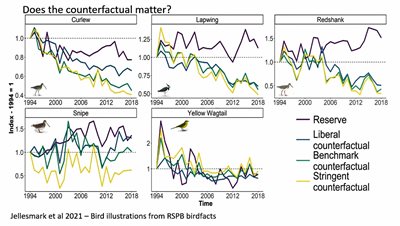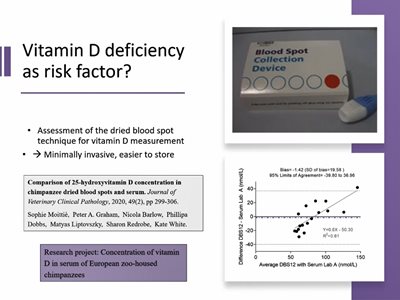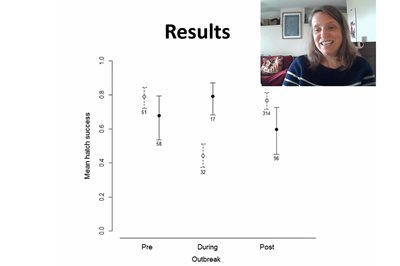On 8 April 2021, the RSS East Midlands local group held an online event to celebrate National Zoo Lovers Day and the re-opening of zoos in England after lockdown. The event included three short presentations that explained how statistics are being used to promote animal welfare and help conservation efforts in zoos across the UK.
Sean Jellesmark, a PhD fellow at University College London and the Zoological Society of London, spoke about his research on measuring the impact of wetland reserves on breeding waders. Sean used longitudinal survey data to match breeding birds from conservation areas to non-conservation areas, and applied counterfactual models to assess how the populations within the reserves would have developed in the absence of reserves. He found population trends for four out of five species were better on the reserves, showing that wetland reserves are effective and benefit breeding wading bird populations.

Dr Sophie Moittie, a postgraduate student at University of Nottingham and member of the Royal College of Veterinary Surgeons, spoke about the Ape Heart Project, a collaborative investigation of heart disease among the captive great ape population. Statistics are used to answer epidemiological questions, such as how common is cardiovascular disease in great apes, to examine biomarkers and identify risk factors for cardiovascular disease, and to assess the accuracy and agreement of medical devices.

Dr Anna Auer-Fowler, a tenure-track fellow, and Dr Maria Sudell, an MRC skills development fellow at the University of Liverpool, shared their experiences collaborating with the research team at Chester Zoo and discussed how statistics are being used to promote animal welfare and to preserve and protect endangered species. Anna presented examples on how statistics are being used to improve animal welfare, including analysing how changes in the feeding regime of Asiatic lions can reduce pacing behaviour. Data are also being used for conservation, including the monitoring of the endangered population of Mauritian parakeets and understanding the impact of supplemental feeding on hatch success during parasitic outbreaks in the birds. The team have also designed and analysed visitor surveys to assess change in visitor knowledge pre and post visit.

The session highlighted the need for collaborations between statisticians and other researchers to make the most of available data, and ended in an encouraging discussion about ways to make use of these examples for training and promoting good use of statistics in schools.
The next RSS East Midlands local group meeting with Professor Sylvia Richardson (current RSS President)
will be at 15:30 on Monday 24 May 2021. Register your place.